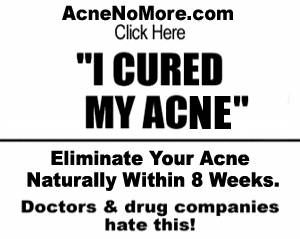Understanding the True Causes of Acne for Effective Treatment
Acne is a common skin condition that affects many individuals, causing frustration and self-consciousness. While there are various myths and misinformation surrounding the causes of acne, it is crucial to understand the true factors behind this condition to effectively address and manage it. In this article, we will explore the primary causes of acne and dispel common misconceptions.
Excess Sebum Production: The Key Culprit
One of the major contributors to acne is the overproduction of sebum, an oily substance that helps maintain the softness of the hair and skin. During adolescence, the body undergoes hormonal changes that result in an increased production of sebum. When combined with dead skin cells, this excess sebum can clog hair follicles, leading to the development of acne lesions.
Visit: Are the Lasting Effects of Acne More Than Just Skin Deep?
Bacterial Growth: The Formation of Pimples
Blocked pores provide an ideal environment for bacteria to thrive, further exacerbating acne. The growth of bacteria within clogged follicles results in the formation of what is commonly known as a pimple.
Hormonal Influence: Testosterone and Acne
Testosterone, a hormone produced by both males and females, plays a significant role in sebum production. During puberty, an abnormal reaction occurs due to increased testosterone levels, leading to excessive sebum production. This surplus oil is frequently found on the facial skin, as well as the back and shoulders. Fortunately, for most individuals, testosterone levels normalize by the age of 20, and acne-related issues subside.
Hereditary Factors: Understanding Genetic Predisposition
Recent studies suggest that acne may have a partial hereditary component. However, pinpointing the exact reasons why some individuals are more susceptible to acne than others remains challenging. Various contributing factors, including stress, diet, skin irritation, hormonal changes, and certain medications, can also influence the development of acne.
Debunking Dietary Myths: The Role of Skim Milk
While many people associate acne outbreaks with the consumption of chocolate, dark soft drinks, and greasy foods, there is no statistical evidence supporting these claims. Surprisingly, recent research has found a potential link between acne and skim milk consumption. Further investigation is necessary to determine the precise mechanisms behind this association. Additionally, specific medications such as lithium, barbiturates, anabolic steroids, and androgens can induce or aggravate acne symptoms.
Narrowing Hair Follicles: Another Potential Cause
Recent studies have identified another possible cause of acne: narrowing hair follicles. When the follicles become narrower, dead skin cells are unable to be expelled properly, leading to their accumulation within the pore. These trapped skin cells, along with sebum and bacteria, contribute to the formation of acne lesions. Several factors can cause hair follicle narrowing, including excessive shedding of cells, abnormal cell binding, and water retention.
The Pitfalls of Pimple Squeezing: Avoiding Further Complications
It is a common misconception that squeezing a pimple helps remove the blocking sebum and bacteria. In reality, this action can worsen the problem by spreading bacteria to other areas of the skin and potentially causing scarring. Severe scarring can be permanent and impact one's self-esteem. It is essential to refrain from touching acne-prone areas, as transferring oil from your hands to already oily skin can exacerbate the condition. Moreover, the bacteria present on your hands can contribute to the spread of acne.
Hair Care and Acne: Maintaining Cleanliness
Proper hair care is crucial in managing acne. Hair can exacerbate the problem by introducing additional oil to areas it touches. Therefore, it is important to keep your hair clean and avoid wearing hats and sweatbands, as they can trap skin oils and contribute to further skin issues.
In conclusion, understanding the true causes of acne is fundamental for effectively addressing and managing this common skin condition. Excessive sebum production, bacterial growth, hormonal influences, hereditary factors, dietary considerations, narrowing hair follicles, and improper skincare practices all play a role in acne development. By dispelling myths and misconceptions, we can empower individuals to take the necessary steps towards achieving clearer, healthier skin.
Mike Walden, a certified nutritionist, health consultant, and former acne sufferer, has developed an acne freedom system that offers valuable information on how to naturally and permanently eliminate acne from its root cause. If you're interested in achieving lasting clear skin, learn more about Mike Walden's program by visiting [AcneNoMore.com]



















0 Comments